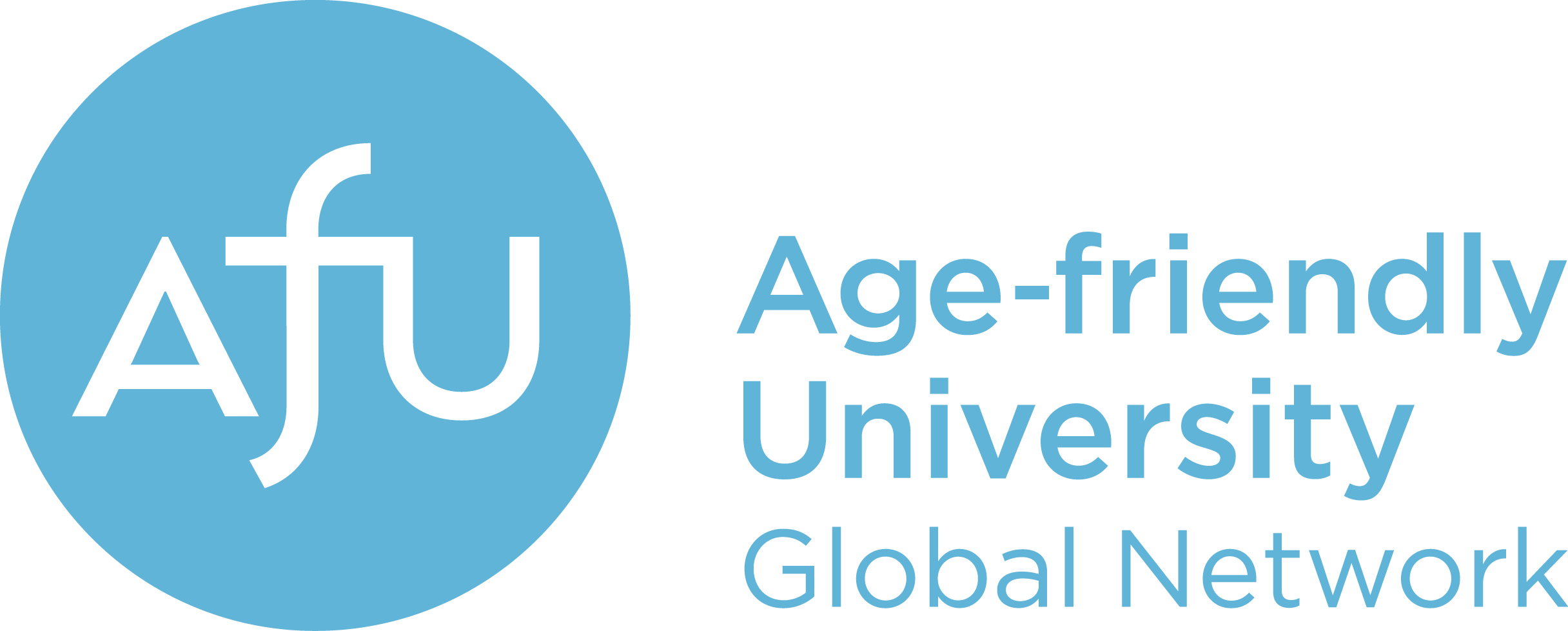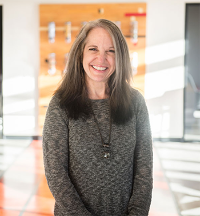VCU's Age-friendly University Initiative

VCU is committed to creating an age-inclusive environment in order to change the narrative about aging through education, advocacy, research, and policy across the lifespan. We strive to promote a culture of age inclusion and appreciation among learners, alumni, faculty, staff and the community. Our goal is to prompt vibrant, holistic, intergenerational communities on our VCU campuses, health system and the larger community.
In recognition of its commitment to creating an age-inclusive environment, VCU was recently welcomed into the Age-Friendly University (AFU) Global Network. You can read more about this designation in this VCU News article from July, 2021.
In creating an Age-friendly University, VCU commits to cultivating a more age-inclusive environment where adults across the lifespace feel welcome, included, and a sense of belonging. As a university, we strive to:
- Change the narrative about aging through education, advocacy, research, and policy.
- Promote a culture of age inclusive and appreciation among learners, alumni, faculty, staff and the community.
- Cultivate vibant intergenerational communities on our VCU campuses and extend to the larger community.
- Support a culture of inclusion and respect for persons of all backgrounds and identities.
|
VCU has identified many programs, initiatives and activities in support of creating an age-inclusive environment; a small selection of these are highlighted on this site. For more information or to get involved in VCU’s Age-friendly University Initiative, please contact Tracey Gendron, MS, Ph.D., Chair of the Department of Gerontology. |  |
|---|
The AFU Principles
As a member of the AFU Global Network, VCU is committed to following the 10 guiding principles originally created by Dublin City University in Ireland:
- To encourage the participation of older adults in all the core activities of the university, including educational and research programs.
- To promote personal and career development in the second half of life and to support those who wish to pursue second careers.
- To recognize the range of educational needs of older adults (from those who were early school-leavers through to those who wish to pursue Master's or PhD qualifications).
- To promote intergenerational learning to facilitate the reciprocal sharing of expertise between learners of all ages.
- To widen access to online educational opportunities for older adults to ensure a diversity of routes to participation.
- To ensure that the university's research agenda is informed by the needs of an aging society and to promote public discourse on how higher education can better respond to the varied interests and needs of older adults.
- To increase the understanding of students of the longevity dividend and the increasing complexity and richness that aging brings to our society.
- To enhance access for older adults to the university's range of health and wellness programs and its arts and cultural activities.
- To engage actively with the university's own retired community.
- To ensure regular dialogue with organizations representing the interests of the aging population.
Age-Inclusive University Terminology
As we outline the ways that VCU embraces the meaning and criteria of embodying an age-inclusive university, we feel that it is our responsibility to model essential anti-ageist language in our effort to promote an age-inclusive campus environment and workplace.
In principle, the term “age-friendly” describes an environment that is inclusive of people of all ages. In practice, using the term “age-friendly” singles out older people by characterizing them as different and in need of special accommodations. Universities and communities that are age-inclusive are good for people of all ages. An all-age-friendly, or age-inclusive, campus describes an environment that is openly, thoughtfully and purposefully developing policies, procedures and practices that are inclusive of all people of all ages and abilities.
Actively creating an age-inclusive environment also requires us to closely examine the appropriate use of the term “aging population.” When we say “aging population” to describe people that are older we inadvertently contribute to the narrative that aging is about others. We are all aging, therefore, it is important to use language that accurately reflects and portrays that aging is about all of us.
Part of a Global Network
The AFU Global Network led by Dublin City University (DCU) is committed to working to promote and support an inclusive approach to healthy and active aging. Since commencing in 2012, DCU developed Ten Principles of an Age-Friendly University which set out a framework for institutions of higher education to embrace age-inclusive practices. By informing students and challenging ageism, network members focus on innovation to address specific issues affecting older adults, offer learning opportunities for social and cultural interactions, and programmes in education, health, and technology for people across the generations to promote a greater, more connected and productive quality of life to support positive and active ageing.
Scores of institutions have joined the AFU Global Network since 2012; you can see the complete list by clicking here. For guidance on advancing age inclusivity in higher education, consult this guide from the Academy for Gerontology in Higher Education.